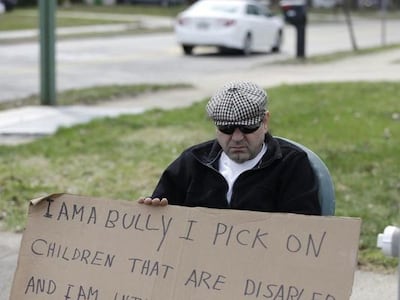SALT LAKE CITY — Public shaming in politics can be a "tribal dog whistle" that attracts like-minded people and pumps up the self-esteem of the person doing the shaming, says the organizer of an upcoming "ethics slam" on the topic.
But shaming also can be an effective tool of justice, and feeling shame can cause people to behave better.
There's no easy answer to the question, "Is shaming ethical?" And that makes the topic perfect for an ethics slam, said Rachel Robison-Greene, co-organizer of the April 3 event in Logan and a postdoctoral fellow in philosophy at Utah State University.
"We want the community to have conversations about tricky issues; to practice in a public setting having civil, rational discussions about these issues because it really can be done. It doesn’t have to devolve into what it becomes on the internet,” Robison-Greene said.
The upcoming ethics slam will give armchair philosophers equal footing with real philosophers in discussing the increase in public shaming and its ramifications, said Robison-Greene, who teaches philosophy at USU.
Ethics slams are modeled after poetry slams, in which poets read their work informally in public. This will be the fifth slam organized by Robison-Greene and her husband, Richard Greene, director of the Richard Richards Institute for Ethics at Weber State University. Previous topics have included gun control, take-a-knee protests and the effects of technology on morality.

At first, they tried to model the events after scholastic ethics bowls, in which participants have a set time in which to make an argument and to respond to others. But Greene said they quickly realized that wouldn't work. In the current format, moderators pose a question and then pass a wireless microphone around the room to anyone who raises a hand. There is no time limit, although people are encouraged to be brief and to thoughtfully respond to what the person speaking ahead of them said, rather than delivering a prepared speech.
There is no need to register; anyone can show up and participate, and the forum benefits from diversity of participants, Greene said. Although the slams always involve controversial questions, participants in previous events have been unfailingly courteous, even during one about #MeToo held during Supreme Court Justice Brett Kavanaugh's confirmation hearings, he added.
"I think people surprise themselves. They sit there and listen to people they vehemently disagree with and hear other points of view. I don’t know that anyone changes their mind, but every everyone sort of feels better about the process," Greene said. "And people who were undecided do make up their mind."
Robison-Greene said she selected public shaming as a topic because it’s complex. People may say readily that certain types of shaming are bad, such as body shaming or shaming one’s children on the internet, but they may approve of shaming white supremacists or people who have committed a crime.
In fact, while public shaming is widely interpreted as something people do on the internet, it has a long history in jurisprudence. Public whipping and stocks were commonplace in colonial times, as were public hangings.
Writing in Prison Legal News, David Reutter said one colonial judge sentenced a man convicted of stealing a pair of pants to being enclosed in stocks with the pants around his neck.
"Public shaming sentences began to fade around the time of the American Revolution, though some shaming punishments, such as the pillory and branding for horse thieves, continued into the 1800s," Reutter wrote.
Shaming today can be comical, such as people shaming their pets for bad behavior, or calculated, such as President Donald Trump's penchant for belittling political opponents by mocking their physical appearance.
And some judges are still incorporating shame into punishment. In Reutter's article, he cited cases in which judges have required people to wear signs in public that said, among other things, "I stole from a 9-year-old on her birthday!" and "Only an idiot would drive on the sidewalk to avoid a school bus."
Shame is a way we have of holding one another accountable. – Rachel Robison-Greene, a postdoctoral fellow in philosophy at Utah State University
“Shame does play an important role. It’s important that we feel shame as an emotion so we modify our behavior going forward,” Robison-Greene said.
“Shame is a way we have of holding one another accountable,” she said. But “whether shaming is the best tool for political discourse” or for making yourself feel superior to others deserves debate, she said.
Robison-Greene said they were initially expecting about 25 to 30 people to attend the slams, but the events are attracting 75 to 100 people, from college students to senior citizens.
“The goal here is community engagement; the goal is not to have philosophers talking to one another. Philosophers are great, but they bring a limited viewpoint when it comes to these important social issues. It’s important to have people of diverse backgrounds who’ve had different experiences,” she said.
The event, which is free and open to the public, begins at 6 p.m. April 3 at The Crepery restaurant, 25 W. Center Street in Logan.



